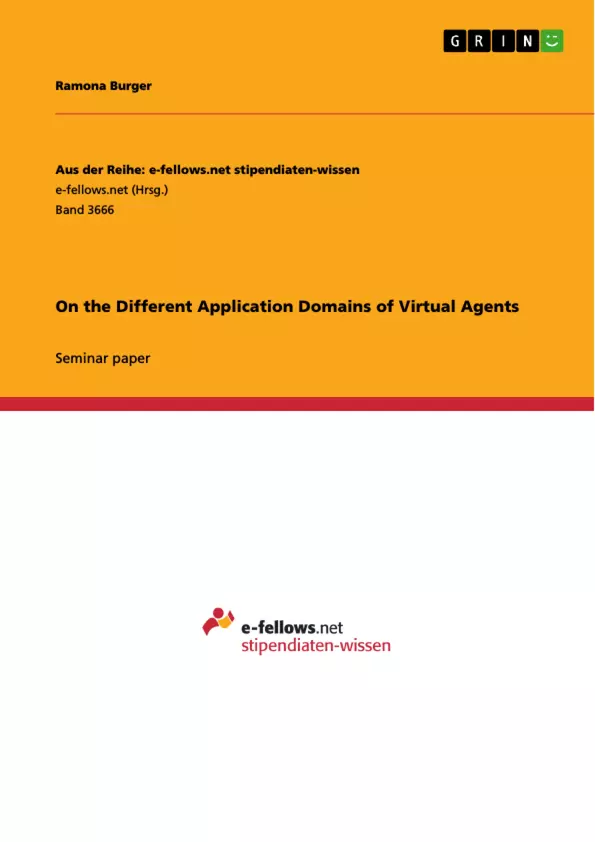There is a huge variety of application domains for virtual agents. They can assist in teaching and learning, they can occur at work, in health care or they can assist in sports activities. The following is a broad overview of different usage scenarios for virtual agents and how these applications have been perceived by potential users.
Inhaltsverzeichnis (Table of Contents)
- Introduction
- Virtual Agents in Pedagogic Environments
- Virtual Agents as Tutors
- Virtual Agents as Teaching Assistants
- Virtual Agents for Educational Simulation
- Virtual Agents in Other Areas of Life
- Discussion and Conclusion
Zielsetzung und Themenschwerpunkte (Objectives and Key Themes)
This work explores the diverse application domains of virtual agents and examines their integration into various aspects of daily life. It investigates the potential and limitations of virtual agents in education, healthcare, and work environments.
- The rising use of virtual agents in various contexts.
- The effectiveness and limitations of virtual agents in different roles, such as tutors, assistants, and coaches.
- The impact of virtual agents on user experience and learning outcomes.
- The role of user perception and interaction design in virtual agent development.
- The potential of virtual agents to support human learning, behaviour change, and task performance.
Zusammenfassung der Kapitel (Chapter Summaries)
- Introduction: This section provides a brief overview of virtual agents as an emerging research topic, highlighting their increasing technological advancements and public interest. It defines virtual agents as intelligent digital characters capable of natural human communication and interaction.
- Virtual Agents in Pedagogic Environments: This chapter delves into the use of virtual agents as tutors and teaching assistants in various educational settings. It examines existing research on intelligent tutoring systems, virtual co-presenters, and learning-by-teaching approaches, highlighting both their potential and limitations.
- Virtual Agents in Other Areas of Life: This chapter expands the discussion to explore the use of virtual agents in domains beyond education. It investigates their application in healthcare, work environments, and behaviour change support systems, presenting research findings on virtual patients, virtual bosses, and motivational feedback systems.
Schlüsselwörter (Keywords)
Virtual agents, intelligent tutoring systems, teaching assistants, educational simulations, psychotherapy training, remote working, behaviour change support systems, user perception, interaction design, human-computer interaction.
- Quote paper
- Ramona Burger (Author), 2020, On the Different Application Domains of Virtual Agents, Munich, GRIN Verlag, https://www.hausarbeiten.de/document/974344


